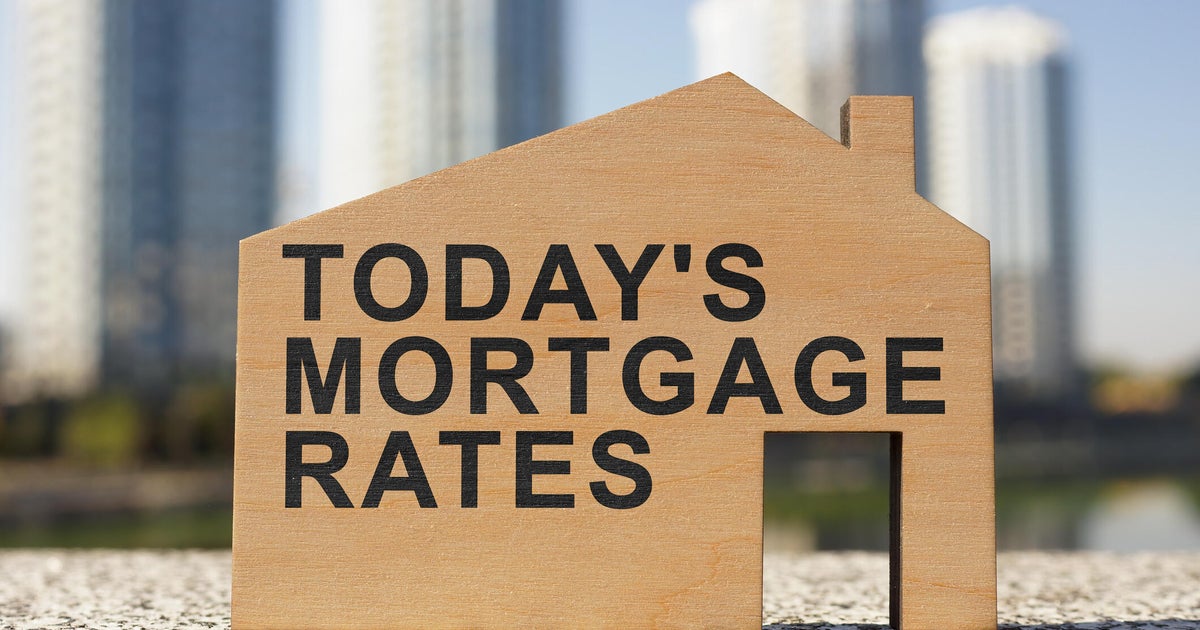How high will mortgage rates climb? Experts weigh in
Mortgage rates have been high for some time, and they're currently the highest they've been this year. As of July 10, 2023, average mortgage rates are 6.40% for 15-year mortgages and 6.95% for 30-year mortgages, according to Bankrate.
Mortgage rates were expected to hold steady following the Fed's latest rate pause, but according to data from Freddie Mac, they've actually risen slightly - up roughly 0.30% - from where they were when the Fed made its June 14 announcement. And with the Fed expected to raise rates again at its July 25-26 meeting, mortgage rates are likely to rise even more.
But how high will that be, and how long will rates stay elevated? We asked some experts for their thoughts.
See the most up-to-date mortgage rates here.
How high will mortgage rates go?
Here's what the experts we spoke with predict for mortgage rates in the immediate future and over the next several months.
Rates may be reaching their peak
The bad news is that mortgage rates are likely to remain high for some time still.
"With the Fed expected to raise the federal funds rates at least twice more this year, I believe we could see rates touch or briefly exceed last October's highs of near 7.2% later this year before falling back under 6% near the end of the year," says Peter Idziak, a senior associate at Polunsky Beitel Green specializing in mortgage law.
The good news is rates are not likely to go astronomically higher.
"With mortgage rates around 7%, I think they are nearing the top and will remain below 8%," says Noah Damsky, CFA and principal of Marina Wealth Advisors. "The Fed is likely entering the later stages of its interest rate hiking cycle as inflation is slowing. As inflation continues to cool and the economy decelerates, I expect the Fed to cut rates in 2024, which will keep mortgage rates from going much higher."
This is in line with what Sam Sharp, executive vice president of national sales at Guaranteed Rate, has observed.
"We saw the peak of the rate increase in October," Sharp says. "We have noted a common trend that the housing market comes to a screeching halt once rates break that 7% barrier. Although I do believe we will still see higher rates this year, I think that we have tested and recognized the ceiling."
View today's current mortgage rates online now.
Where rates are heading
As for when rates might begin dropping, it largely depends on what the Fed does over the next several months and how the market reacts. That said, many experts expect rates to begin falling by the end of the year or the beginning of next year.
"I think we are approaching the peak of high interest rates and hopefully will start seeing some relief in the second half of 2023," says Darren Tooley, senior loan officer at Cornerstone Financial Services. "Currently, rates are higher than both what the Mortgage Bankers Association and Fannie Mae forecasted for quarters two and three of this year, and that has been fueled by recent banking turmoil, Fed rate hikes, labor data and inflation numbers remaining higher than anticipated."
"As early as this Wednesday, July 12, when we get the Consumer Price Index, a good reading could bring inflation numbers down to just above 3% when at one point it was over 9%," Tooley continues. "Considering there have been some stubborn numbers still holding back lower inflation, hopefully, a good reading will be a catalyst to improved rates as the year goes on."
Alvin Carlos, CFP, CFA, financial planner and managing partner at District Capital Management, points to mortgage spread rates as another indication rates may go down over the remainder of 2023 and 2024.
"The spread between the 30-year mortgage rate and the 10-year Treasury yield is typically between 1.5 to 2%," Carlos says. "The 10-year treasury is now at 4%, so the mortgage rate should be between 5.5% and 6%. The 30-year mortgage rate is currently… way above the typical spread. That's why there's a good chance mortgage rates will fall sometime in the next six to 12 months. If the Federal Reserve signals a pause on rate hikes, that may be the spark that will cause mortgage rates to head back down."
Start exploring your mortgage options by comparing current rates here.
The bottom line
As with any economic predictions, nothing is 100% certain, and where mortgage rates will actually head remains to be seen.
"If inflation remains elevated over the second half of 2023, that may force the Fed to raise rates more than anticipated, which would push mortgage rates higher than current predictions," says Idziak.
That said, based on the insight these experts provided, we can reasonably expect rates to hold steady at or above 7% before beginning to move downward over the next several months.
In the meantime, there are several things buyers can do to mitigate the effects of high rates, including making a larger down payment and carefully comparing different loan options. At the end of the day, mortgage rates may be beyond your control, but you can still get the best rate available today by doing your research and weighing several offers.




